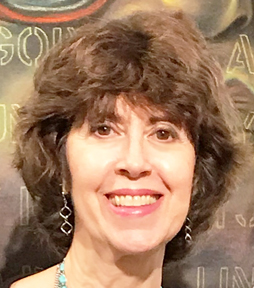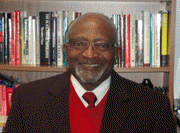What do Indigenous people living in Fort Chipewyan in Northern Alberta, Canada have in common with communities of color in Port Arthur, Texas?
The answer is the Keystone XL Pipeline--and the correlation isn't positive. If anything, the connection shows how those without the clout of power and money are left holding the bag.
Once again, this point needs to be examined as non-affluent, non-white communities are consistently having their lives and well-being impacted while others benefit from choices that sustain their respective interests and safety.
Dr. Cora Voyageur, whose work has examined issues impacting Indigenous people in Canada, has undertaken a study to look at how the health of those living near the oil sands where the pipeline will originate have been affected.
Dr. Robert Bullard by Courtesy of Dr. Robert Bullard
To get an overview, I reached out to Dr. Robert D. Bullard, who I have previously interviewed. He is recognized as the "Father of Environmental Justice." He gave me a series of stats, which drew a clear picture of the challenges faced by the populace of Port Arthur--where the racial makeup is 76 percent people of color.
- The poverty rate in Port Arthur is 26 percent compared to the Texas state level of 17 percent
- The median income of Port Arthur is $32,178 compared with the Texas state figure of $50,920--only 63 percent of the state median
- In March 2013, the unemployment rate in Port Arthur reached 14.2 percent compared with the Texas state figure of 6.5 percent-- 2.25 times the state rate
Bullard underscored that the "unemployment rate for the predominately people of color in Port Arthur is always significantly higher than the unemployment rate of [the] majority white (68.2 percent) Beaumont-Port Arthur Metro Region."
Responding to the repeated use of the "jobs card" from supporters of the XL Pipeline, Bullard swiftly laid that premise to rest. He said, "In Port Arthur, the refineries still have not brought an economic renaissance. Those industries don't hire fence-line residents. Their employees drive in and drive out. The question is, "Who gets the benefits and who bears the burdens?' The area of Port Arthur is polluted, stuck with poverty and illness. The burden of the pollution is borne by the city's residents."
Pointing out the dire situation facing the inhabitants of Port Arthur, Bullard explained, "Port Arthur is already a sacrifice zone, which means it has a concentration of polluting industries. You're talking about adding something else on top of current problems." Bullard continued, "Port Arthur is sicker than the rest of Texas with elevated rates of asthma, cancer, and cardiovascular disease. These increasing levels of pollution will exacerbate the health of the most vulnerable population--children."
The preponderance of these industrial factories is not a coincidence. Bullard noted, "[These] industries are not randomly located." He pointed to the political structures that were controlling decision-making.
Port Arthur has been the object of constant redistricting. Bullard defined the redrawn districts as "gerrymandering on steroids." The city is currently represented by Congressman Randy Weber. He has declared about the pipeline, "The project is in the interest of all Americans."
Both the Indigenous communities in Canada and the residents of Port Arthur have seen elevated incidence of illness. Bullard and others invariably discuss the toxicity of the product that comes from tars sands oil. Bullard said, "It's one of the dirtiest types of oil. It is filled with cancer causing agents. It's nasty stuff."
In agreement with Bullard is Hilton Kelley, the 2011 recipient of the Goldman Environmental Prize in North America. Kelley is fighting to make on the ground changes in Port Arthur through his non-profit organization "Community In-Power & Development Association (CIDA). I spoke with him by telephone shortly after President Obama's climate change speech.
(Note: You can view every article as one long page if you sign up as an Advocate Member, or higher).






